Helix Bridge, Singapore
This unique bridge across the Singapore River is designed to look like DNA. Opened in 2010, it’s made mostly from steel and is illuminated at night by ribbons of LED lighting to compliment its unique design.
Chapel Bridge, Switzerland
Located in the town of Lucerne, this stunning bridge was built in 1333 and crosses over the Reuss River diagonally. Rich in history, it’s the oldest wooden covered bridge in Europe. The inside of the bridge is decorated by 17th century paintings depicting events in local history. It was nearly destroyed in a fire roughly 20 years ago. About two thirds of the bridge and 85 of the 110 paintings were lost, some dating back to 1611. Only 25 could be saved or restored, and the bridge itself was rebuilt a year later.
Chengyang Bridge, China
Nicknamed the “Wind and Rain Bridge” and hidden amongst the rice fields and mountains, this bridge is found in the Guangxi Province of China, spanning the Linxi River. Built in 1916 by the Dong people, an ethnic minority in China, the bridge has five separate pagoda structures with porches and pavilions. The traditional Chinese architecture makes for a fantastic looking structure, but its finest achievement is not using a single nail, relying instead on some amazing architectural tricks.
Rolling Bridge, England
This unique bridge is found in the Paddington Basin area of London. Every Friday, the octagonal shape rolls out to reveal itself as a bridge. Later during the day, it will curl itself back into its original form, hiding away again until it reemerges the next Friday. It uses hydraulics to achieve this feat. It was designed by Thomas Heatherwick and completed in 2004. He also designed the London 2012 Olympic and Paralympic Cauldron.
Langkawi Sky Bridge, Malaysia
The Langkawi Sky Bridge can be accessed via cable car. It is a 410 ft-long curved pedestrian bridge above Gunung Matchincang roughly 2,300 ft above sea level. Once you travel the mountain via the the cable car, it gives you the opportunity to view some of the most beautiful sights of the Malaysian mountains and rainforests.
The Gateshead Millennium Bridge, England
Opened by the Queen in 2002 and found in the city of Newcastle, the Gateshead Millennium Bridge is unique as one of the few bridges in the world that tilts. When it is tilted one way, it turns into a normal pedestrian bridge that the public can cross over. When it is tilted the other way, it let boats and ships pass beneath. The bridge has won many architectural awards for its design and is nicknamed the “Winking Eye Bridge” because it looks like an eye winking every time it tilts.
Stari Most, Bosnia
Literally translated as “Old Bridge” in English, Stari Most was thought to be built in 1566 and managed to withstand the test of time until the bridge was destroyed in 1993 during the outbreak of the Bosnian war. More than $13 million was spent on rebuilding the 16th Century bridge until it was finally restored and opened to the public again in 2004. It is a tradition for locals to dive off this bridge into the river below. The bridge is also recognized as a world heritage site.
Akashi-Kaikyō Bridge, Japan
One of Japan’s greatest pieces of engineering, this bridge holds the record for bring the longest suspension bridge in the world with a total length of 3,911 m. It would take four Brooklyn Bridges to span the same distance. Opening in 1998, it took 12 years to build, and it links the city of Kobe in Hyogo Prefecture to Iwaya in the Awaji Island. It was never built with the intention of being the longest suspension bridge in the world, but in 1995, the Kobe Earthquake hit halfway during it’s construction and consequently added an extra 3 ft, which gave the bridge its record. The length of the cables used in the bridge totals 300,000 km. That’s enough to circle the earth 7.5 times.
Rialto Bridge, Italy
Built in the 15th century and rich in history, it crosses over the Grand Canals of Venice. It was technically built before that, in 1181, as a small barge that served as the only crossing to get to the other side of the Grand Canal. In 1551, authorities asked for the bridge to be upgraded. Some of the best architects in history, including Michelangelo and Palladio, offered plans to redesign the bridge but the honor eventually went to Antonio da Ponte. Skeptical of his plans, architects predicted the failure of the bridge, but he defied them. The classic Venetian architecture adds to its appeal, and until the nineteenth century, Rialto Bridge was still the only bridge to span the Grand Canal and the only link between the two sides of Venice until more modern day bridges were built.
Slauerhoffbrug Bridge
No, this one isn’t fake! This extremely bizarre bridge is found in Leeuwarden. Because of the vast amount of rivers running throughout the Netherlands, and boat traffic as high as the volume of vehicles, the country needed a bridge able to quickly raise and lower itself to benefit both road and river traffic. Constructed in 2000 from iron and steel, the bridge is raised and lowered 10 times a day with the use of hydraulics.
Octavio Frias De Oliveira Bridge, Brazil
Opened in 2008 and found in the city of São Paulo, it took 5 years to build and 450 workers to build it. The bridge is unusual due to its X shaped structure in the middle. It has two levels of traffic crossing one another as they pass through the pylon and is decorated in LED lights that create amazing views. On special occasions such as Christmas, the bridge can be lit up to look like a Christmas Tree.
The Falkirk Wheel, Scotland
Their is more to this bridge than it’s futuristic design. This is the worlds first and only boat lift! That’s right, the structure can actually rotate 180 degrees and is equipped with two locks which have 168 m long tunnels that emerge at the ends of the 2 wheels. Boats at the bottom sail into these tunnels, the structure then rotates, lifting the boats up to the top of the canal. The bridges unique way of connect the canals and transporting boats makes it an exceptional feat of modern engineering.
Henderson Waves Bridge, Singapore
This bridge was designed to look like waves, as you can guess by the name. It connects two of Singapore’s parks, Mount Faber Park and Telok Blangah Hill Park, and has a stunning view of Singapore’s natural side. At night, it’s lit to add beauty to its already artistic design. The bridge is equipped with seating, lounging, and sight-seeing areas to compliment its surrounding view.
Siduhe Bridge, China
Opening in 2009, the Siduhe Bridge is officially the world’s highest bridge and probably the scariest for people with a fear of heights. It was built 1,627 ft above ground to achieve this record, higher than the Statue of Liberty, the Eiffel tower, the Pyramids of Giza, and Big Ben. It’s location clearly proved a challenge for its construction. Over 1000 meters of tether was attached to the end of a rocket and shot all the way across the gorge to help set foundations.
Millau Viaduct, France
This bridge is in the Guinness Book of World Records for being the tallest bridge in the world. It stands at an incredible 1,125ft tall. The bridge gained international recognition as a major engineering feat and received the Outstanding Structure Award in 2006, one of the most prestigious architectural prizes. The president of France, Jacques Chirac, opened the bridge in 2004, which cost an estimated 394 million euros, or 524 million dollars.
Danyang-Kunshan Grand Bridge, China
While the Siduhe Bridge is the highest bridge in the world and the Millau Viaduct is the tallest bridge in the world, this bridge is the longest bridge in the world. It’s a jaw dropping 102 miles in length. The rail bridge forms parts of the Beijing-Shanghai High-Speed Railway, and as the name suggests, it helps link Danyang to Kunshan. Construction started in 2006, took four grueling years to be completed, and opened in 2011. The huge project cost an unbelievable 8.5 billion dollars and employed roughly 10,000 workers on site.
Moses Bridge, Netherlands
Taking a break from the big and grand scale designs, this bridge is appropriately called the Moses Bridge because it splits the water in two. The innovative design was built in a 17th century fortress during its restoration. A bridge was to be built across it, but architects, not content with making the fortress so visible to its enemies, had other things on their minds. They decided to disguise it and put it under the moat’s waterline to make it almost invisible. It sits within the moat and allows people to cross virtually undetected from water level.
Khaju Bridge, Iran
Built by the Persian King, Shah Abbas II, during the 17th century, the Khaju Bridge has 23 arches. The bridge also functions as a dam, controlling the waters of the Zayandeh River it overlooks. The remains of stone seats, built for Shah Abbas II to sit on and admire the view, still remain. In the center, a pavilion was built exclusively for his pleasure, originally as a tea house.
Brooklyn Bridge, USA
Completed in 1883, the Brooklyn Bridge is a national historic landmark and an icon of New York. It is situated perfectly behind the tall skyscrapers of New York City, creating an amazing view. It connects Manhattan to Brooklyn and crosses the East River. John A. Roebling originally planned the Brooklyn Bridge but died shortly before construction began. His son, Washington Roebling, continued his work, but he himself was struck with disease and confined to an apartment overlooking the construction site. Emily Roebling, his wife, gave his instructions to the workers and was practically chief engineer until the bridge was completed. It was the biggest of its kind back then and was an engineering feat of the 19th century. P.T Barnum famously led a group of circus animals, including a herd of 21 elephants, across the bridge in 1884 to prove that the bridge was stable.
Sydney Harbour Bridge, Australia
Otherwise nicknamed the “coat-hanger,” plans began in 1815 when Francis Greenway proposed building a bridge from the northern to the southern shore of the harbour. In 1890, design submissions were sent in, but all the submissions were considered unsuitable. Fast forward to WWI and officials started to take the project to hand. An architect was found, and the Sydney Harbour Bridge construction started in 1924. It took 1,400 men and eight years to build at a cost of 4.2 million pounds, or 6.61 million dollars. Six million hand driven rivets and 53,000 tonnes of steel were used in its construction. Fast forward to today, and it is now one of the world’s most recognizable bridges, especially during the Sydney Harbor new year celebrations.
Pont Alexandre III, France
Elegance is the best word to describe this bridge. Located in Paris, construction started in 1896 and finished in 1900. It was built in the Art Nouveau style and is decorated with statues of nymphs, cherubs, winged horses, angels, ships, and vintage lamps along its sides to create one of most decorated bridges in the world. Despite being French, it’s named after Alexander the 3rd, Emperor of Russia, to honor the Franco-Russian alliance. Alexander’s son, Nicholas the 2nd, laid the first stone during the start of the construction. The statues gleaming in gold, bronze, copper and stone compliment the Parisian style of the bridge.
Banpo Bridge, South Korea
From the vintage to the modern, this really awesome bridge is found in Seoul and crosses the Han River. The bridge itself was actually created in 1982, but in 2007, a project was launched to revive the area. In 2009, the project did just that. During the day, the fountain shoots 190 tons of water per minute from each side of the bridge from its 380 nozzles. At night, the color of the fountain will be transformed to a rainbow by the 10,000 LED lights which create various colorful effects. The water jets are dynamic and can move in time with the music, creating spectacular ever-changing displays. In 2008, the fountain made it into the Guinness Book of World Records as the longest bridge fountain.
Golden Gate Bridge, USA
The Golden Gate Bridge has become an icon not only to San Francisco but to the whole of the United States. Designed by engineer Joseph Strauss, it was built to connect San Francisco with Marin County and to cross the strait known as the Golden Gate, hence the name. Starting in 1933, it would take thousands of workers, 4 years, and 35 million dollars to complete. When the bridge was completed in 1937, it broke two records, becoming the world’s longest and tallest suspension bridge.
Tower Bridge, England
In the 19th century, London Bridge was the only way of crossing the Thames River. As London grew, more bridges were added on the west side of London Bridge. The east side however became a busy port, requiring a new bridge. It took 8 years, 432 workers, and over 11,000 tons of steel to build what would become the Tower Bridge. The Prince of Wales opened the bridge in 1894, and it helped relieve the stress of the east side. The bridge would become one of the world’s most recognized bridges due to its iconic design. It has two towers at the ends of each bank. The middle section of the bridge can raise up and down to let ships sail past, which is done with the use of hydraulics. The bridge is not only an icon of London, but to the whole of the U.K.
Ponte Vecchio
Ponte Vecchio is a medieval bridge found in the city of Florence, crossing over the Arno River and is so ancient that it dates back to the Roman Empire era. Destroyed by a flood in 1333, it was rebuilt in 1345 by Taddeo Gaddi. In 1565, Giorgio Vasar was commissioned to upgrade the bridge, adding an upper corridor. This bridge is famous for the houses positioned along its span, some of them protruding out to the side. Initially, however, they were workshops where shopkeepers such as butchers and tanners practiced their trades. In 1593, they were replaced with goldsmiths, because the shops produced too much garbage and caused a foul stench. The Ponte Vecchio was the only bridge in Florence that survived WWII unscathed, and it was the only bridge spared by the Germans during the siege in Italy.

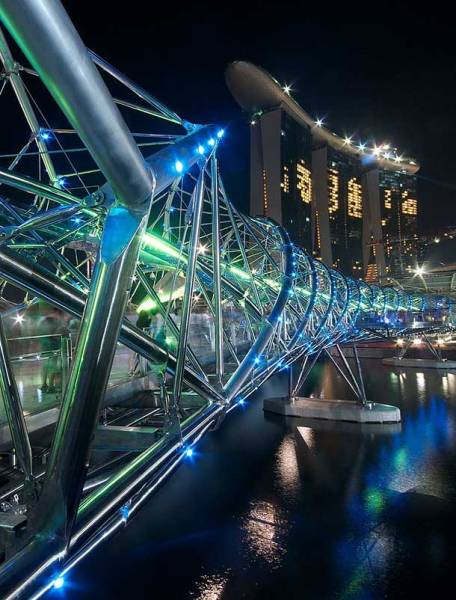
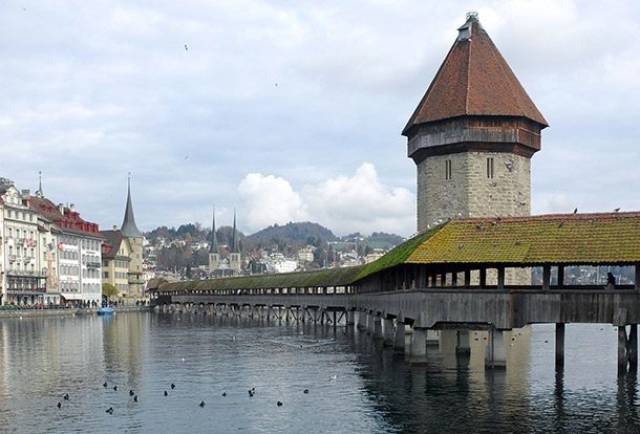
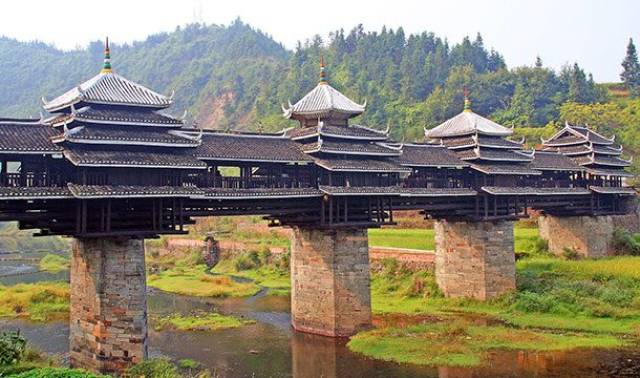
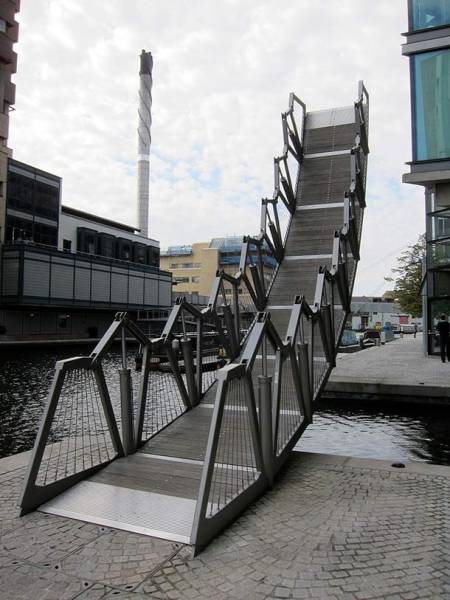
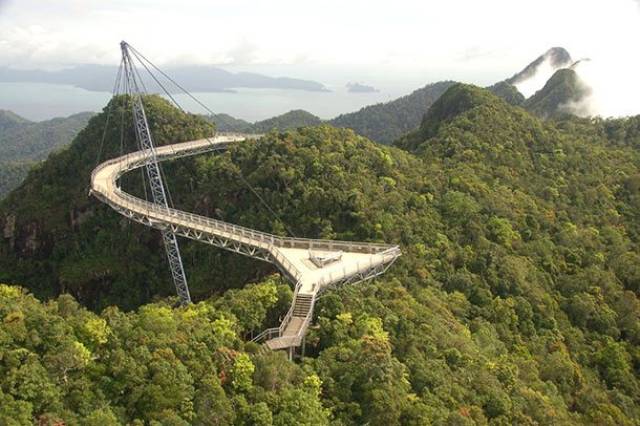
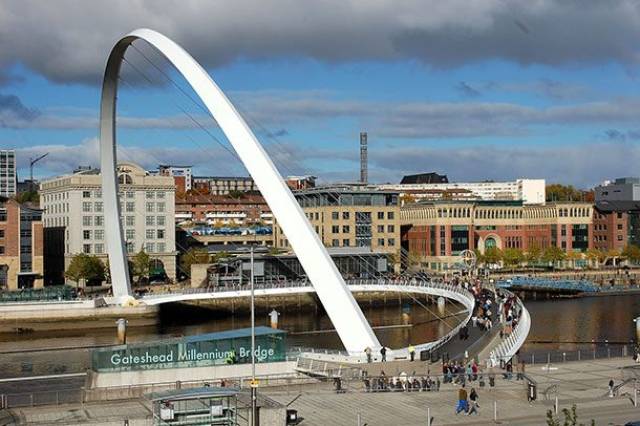
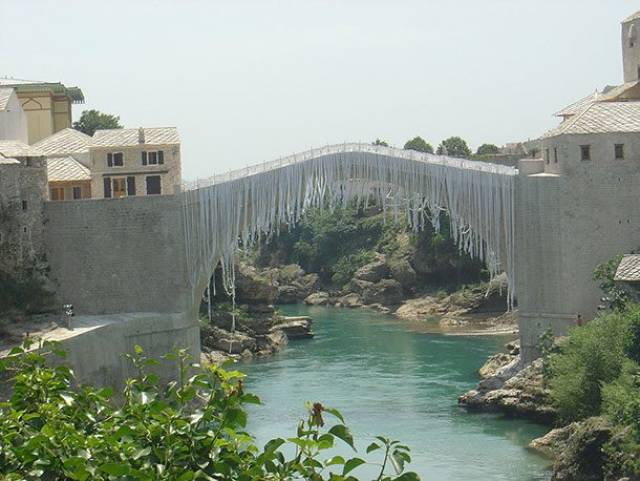
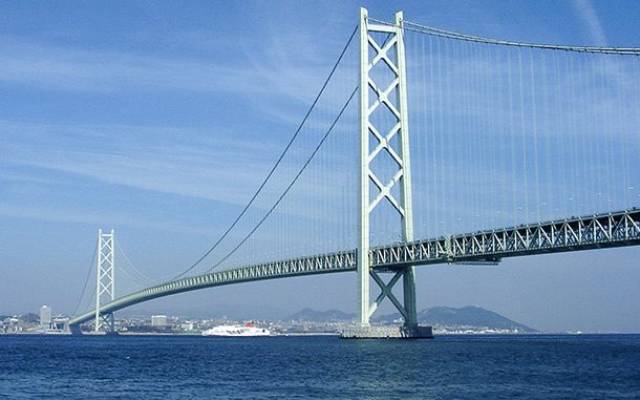
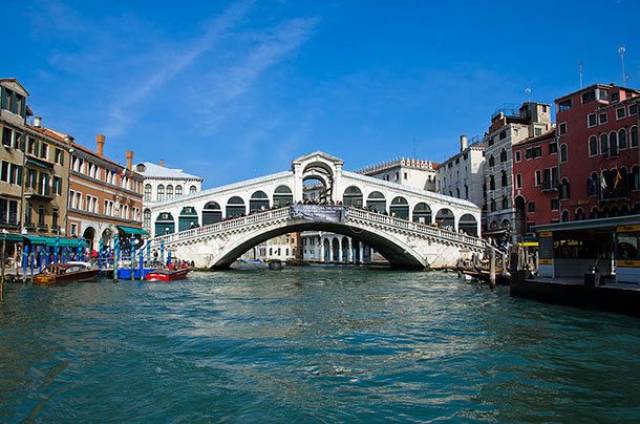
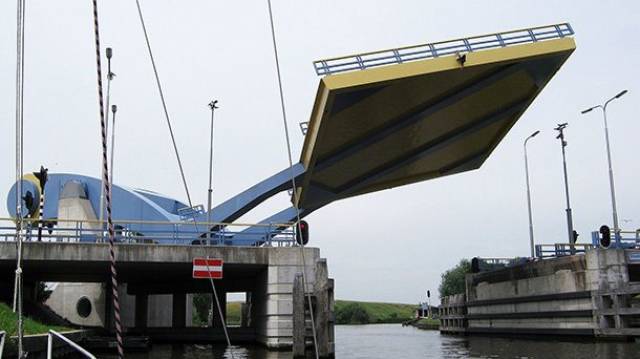
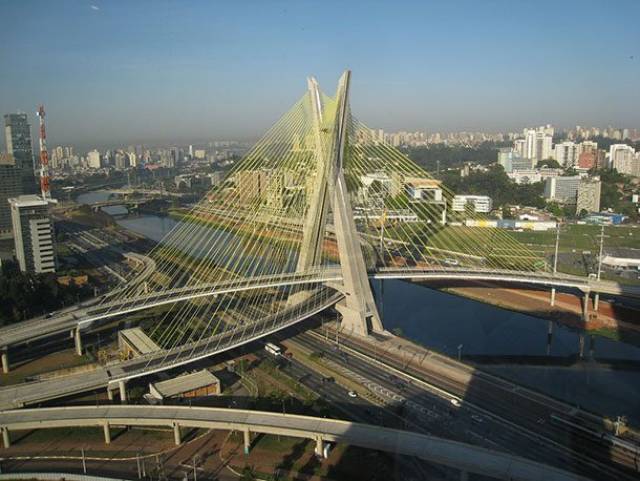
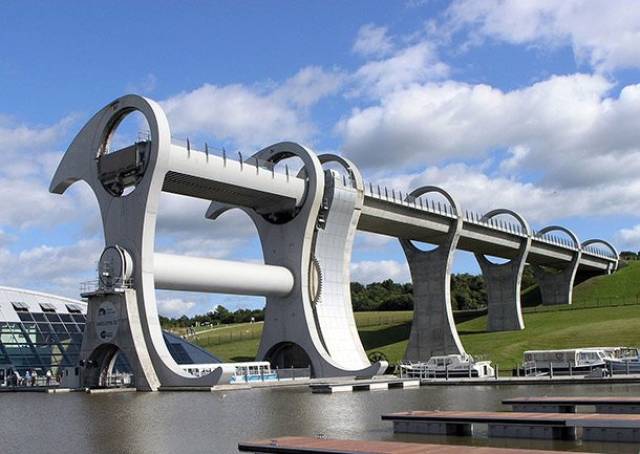
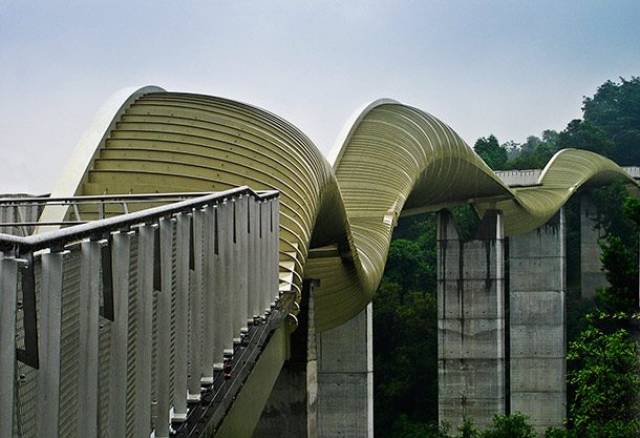
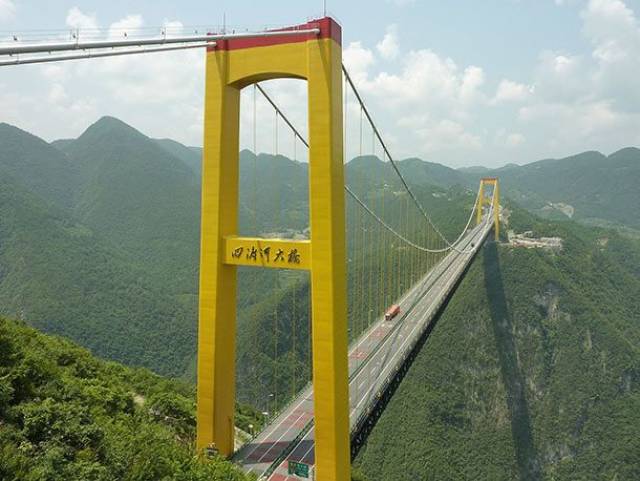
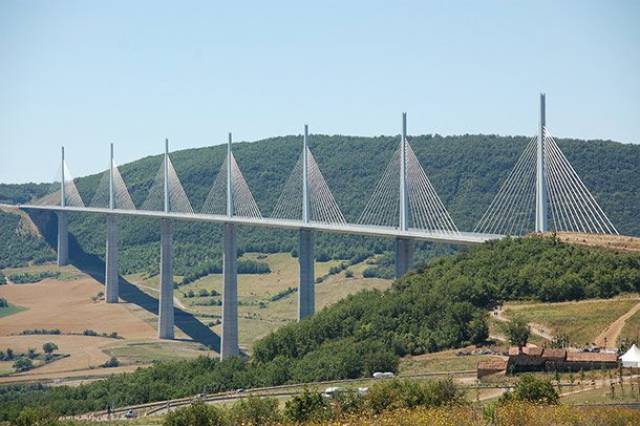
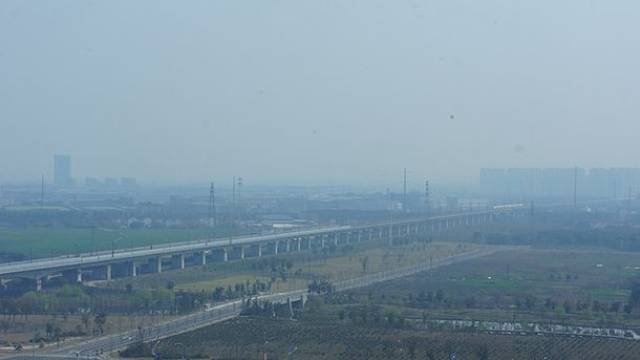
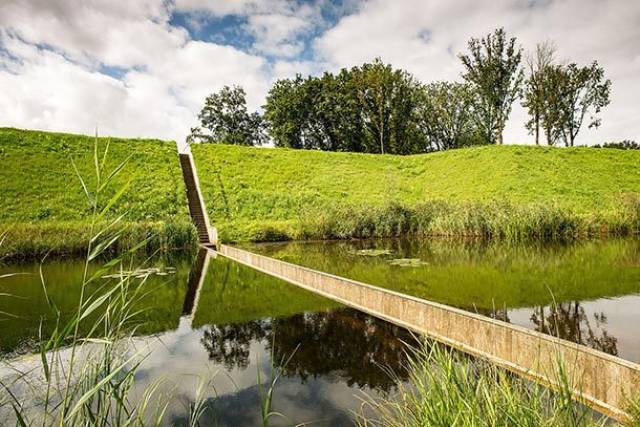
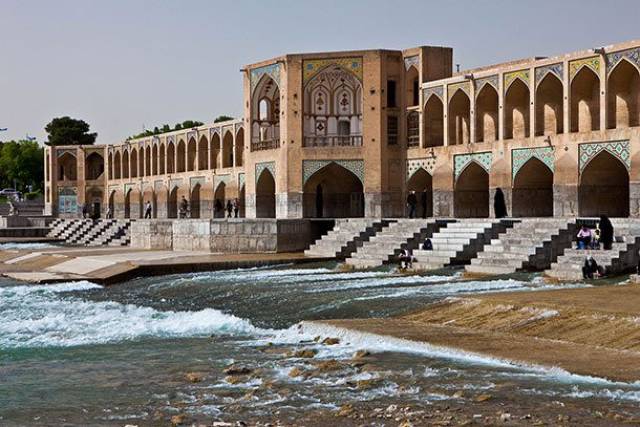
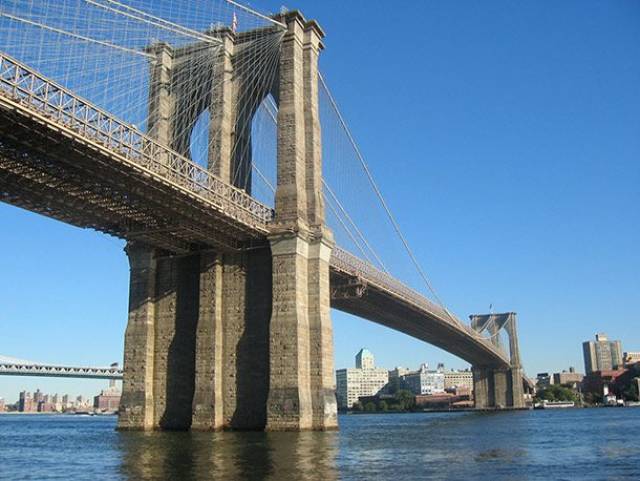
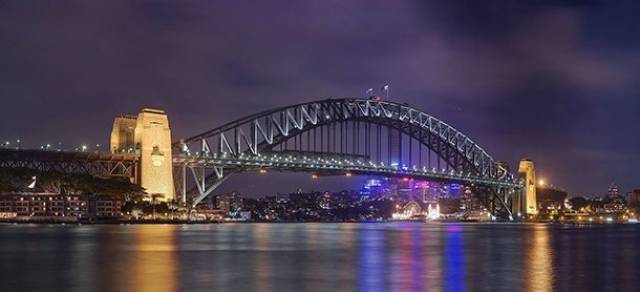
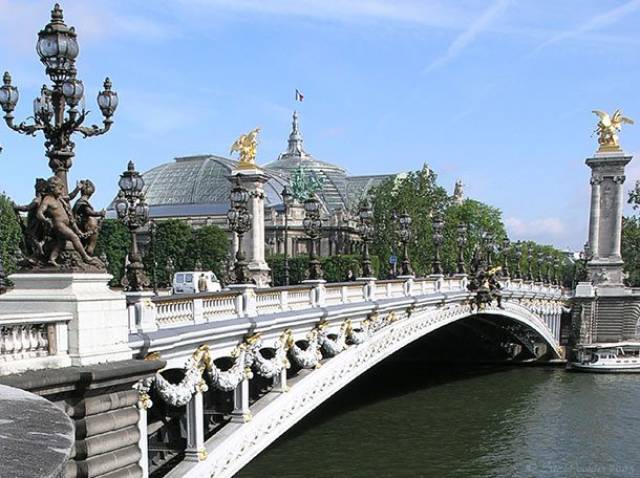
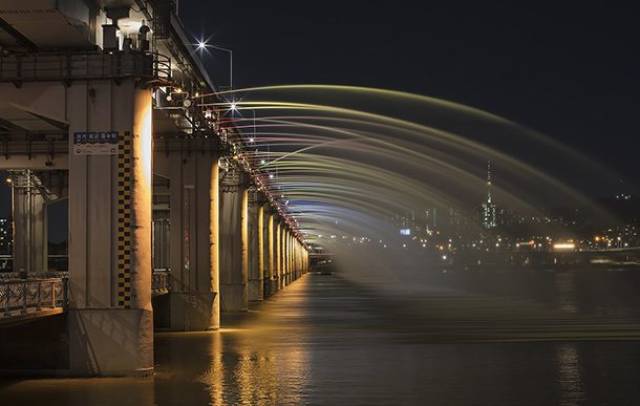
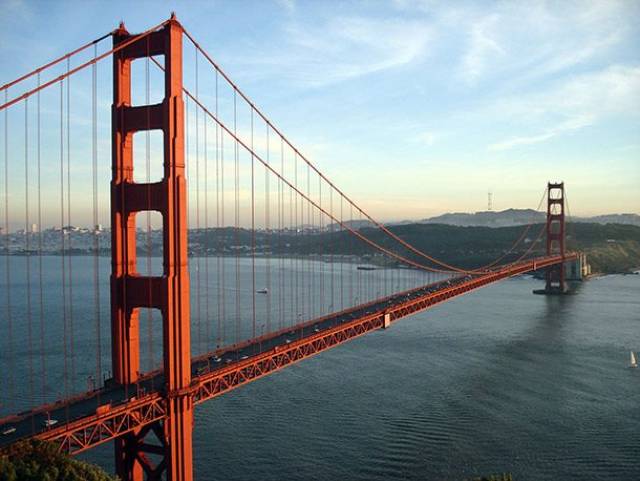
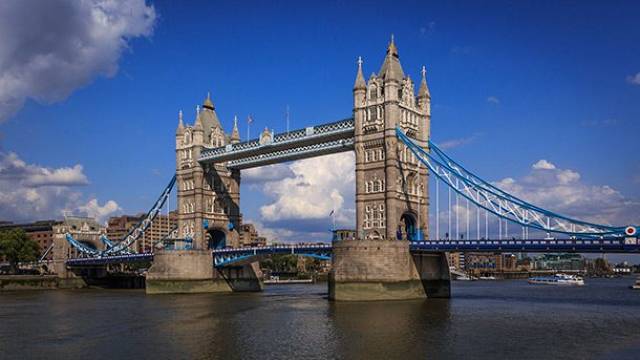
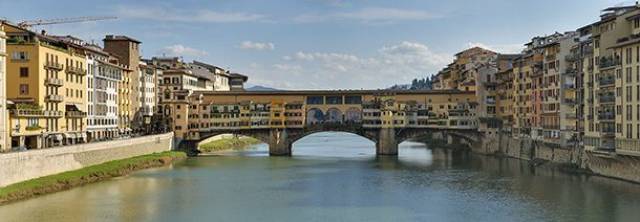



But the essential point is missing: the Names of their creators, the Architects who envisioned and brought to light these magnificent works! It's not like these appeared out of nowhere!
Their merits have to be recognized every time people see their creations.
Like when you see the Mona Lisa and immediately Leonardo's name comes to mind...